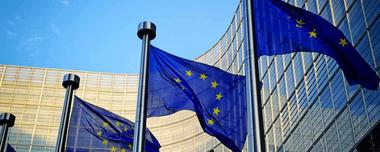compliance-and-data
GDPR: does this affect the recruiting industry?


Orla Hodnett
HireHive

Orla Hodnett
HireHive


Orla Hodnett
HireHive

Orla Hodnett
HireHive
Curious about how GDPR will impact your recruiting practises and recruiting software usage?
You may have heard about the GDPR directives that come into force in May 2018. These new guidelines endeavour to improve and strengthen existing data protection practises within the EU, through a set of rules to follow on data usage and storage.
But how might these new rules affect the recruiting and HR industry? And how might you need to change your practises? Might this change how you use recruiting software and tools? Here are five things to consider ahead of the roll-out in May 2018.

GDPR directs that you should be able to fully trace where you gathered any data from applicants
How exactly did you obtain the information you have about candidates from candidates? GDPR directs that you should be able to fully trace where you gathered any data from applicants, to ensure that you did not gather any information under false pretences.
This is one area where recruiting software may be able to help greatly. As you receive, process and store applications in the tool, you will have an overview of the whole pipeline that you can present in any case of audit.
How and where you store candidate information is extremely significant. Personal data is information HR and recruiting personnel handle every day, so the significance of this will not be news to any industry professional.
The GDPR directs that HR and recruiting personnel encrypt and pseudonymise data where possible. Any systems processing data should be airtight and you should report any data breaches to those concerned. You must also get consent from candidates to store data.
Any data you gather from candidates helps you determine if they are suitable for the vacancy in question. So once you confirm with a candidate that you consent to use their information in this way, you are compliant.
Where GDPR may impact how you work is in the reuse of data. This may require you to seek further consent if you wish to use their data as part of another recruiting project for another role.
Recruiters use automation in various processes in the recruiting process and in many areas of HR. It is a practical and efficient means of filtering candidate information based on your needs. Also, the GDPR has some new directives on how organisations can do this.
Wherever automation is used in the recruiting process, you must inform candidates that it is occurring
Wherever automation is used in the recruiting process, you must inform candidates that it is occurring. Not only that, but you must inform candidates what kind of filtering you use and on what basis their information might be filtered.
The directives of the GDPR govern any organisation operating within the EU, any company storing data in the EU or any organisation handling the data of EU citizens. Could this impact your hiring practises?
Even if you are operating outside the EU, if your recruiting efforts involve doing any of the above, you must ensure that you are compliant with GDPR.
Sign up for our monthly newsletter to receive the latest news, insights, and exclusive resources.

“HireHive makes the team a lot more productive. We’d be lost without it. Team Leaders can do it all themselves if needed or jump in at the right time and know exactly where everything is and what’s happening.”

Hilary Dempsey Head of HR at Life Credit union